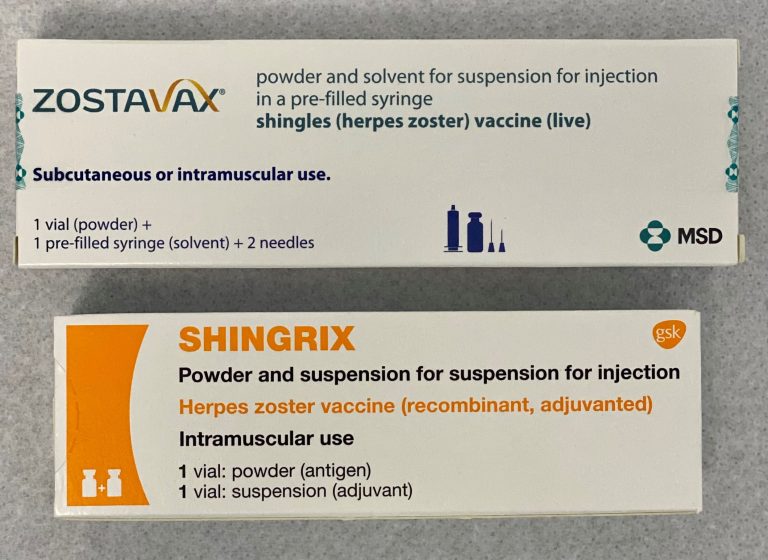GSK plc has announced that the US Food and Drug Administration (FDA) has accepted the New Drug Application (NDA) for gepotidacin, an investigational, first-in-class oral antibiotic with a novel mechanism of action for the treatment of female adults (³40 kg) and adolescents (³12 years, ³40 kg) with uncomplicated urinary tract infections (uUTIs).
- Application supported by positive results from pivotal phase III EAGLE-2 and EAGLE-3 trials
- 26 March 2025 assigned as action date for FDA decision
- Gepotidacin could be the first in a new class of oral antibiotic treatment for uUTIs in over 20 years
The FDA has granted Priority Review for this application and assigned a Prescription Drug User Fee Act (PDUFA) action date of 26 March 2025.
Over half of all women are affected by uUTIs in their lifetime[1], with approximately 30% suffering from recurrent disease which can cause significant patient burden, including discomfort and restriction of daily activities.[2] New treatments are needed as the number of uUTIs caused by drug-resistant bacteria is increasing and can result in higher treatment failure rates.[3] Gepotidacin is a late-stage antibiotic in GSKÕs growing infectious disease portfolio and could be the first in a new class of oral antibiotics for uUTIs in over 20 years.
The NDA is supported by positive results from the pivotal phase III EAGLE-2 and EAGLE-3 trials. In these studies, gepotidacin demonstrated non-inferiority to nitrofurantoin, the current standard of care for uUTI, in female adults (³40 kg) and adolescents (³12 years, ³40 kg) with a confirmed uUTI and a uropathogen susceptible to nitrofurantoin. In EAGLE-3, gepotidacin achieved statistically significant superiority versus nitrofurantoin, demonstrating therapeutic success in 58.5% (162/277) of participants compared to 43.6% (115/264) for nitrofurantoin (treatment difference 14.6%, 95% CI (6.4, 22.8)). In EAGLE-2, gepotidacin demonstrated therapeutic success in 50.6% (162/320) of participants compared to 47.0% (135/287) for nitrofurantoin (treatment difference 4.3%, 95% CI (-3.6, 12.1)).
The safety and tolerability profile of gepotidacin in the EAGLE-2 and EAGLE-3 phase III trials was consistent with previous trials of gepotidacin. The most commonly reported adverse events (AEs) in gepotidacin participants were gastrointestinal (GI). Diarrhoea was the most common (16% of participants), followed by nausea (9%). Of the participants who reported GI AEs in the gepotidacin group, the maximum severity were mild (69% Grade 1) and moderate (28% Grade 2). Participants with Grade 3 GI events accounted for 3% of all patients with GI events and occurred in <1% of all participants. There was one drug-related serious adverse event in each treatment arm (gepotidacin and nitrofurantoin) across the two trials.
The development of gepotidacin has been funded in part with federal funds from the US Department of Health and Human Services, Administration for Strategic Preparedness and Response, Biomedical Advanced Research and Development Authority (BARDA), under Other Transaction Agreement number HHSO100201300011C and with federal funds awarded by the Defense Threat Reduction Agency under agreement number HDTRA1-07-9-0002.
About gepotidacin
Gepotidacin, discovered by GSK scientists, is an investigational bactericidal, first-in-class triazaacenaphthylene antibiotic that inhibits bacterial DNA replication by a distinct binding site, a novel mechanism of action and for most pathogens, provides well-balanced inhibition of two different Type II topoisomerase enzymes. This provides activity against most target uropathogens (such as E. coli and S. saprophyticus), and N. gonorrhoeae, including isolates resistant to current antibiotics. Efficacy and safety in patients have been demonstrated in uUTI and gonorrhoea phase III clinical trials, including those with drug-resistant pathogens. Due to the well-balanced inhibition, gepotidacin target-specific mutations in both enzymes are needed to significantly affect susceptibility to gepotidacin. Therefore, leading to a lower potential for resistance development.
[1] Czajkowski, K., et al. Urinary tract infection in women. Prz Menopauzalny. 2021;20(1):40-7.
[2] Little P, Merriman R, Turner S, et al. Presentation, pattern, and natural course of severe symptoms, and role of antibiotics and antibiotic resistance among patients presenting with suspected uncomplicated urinary tract infection in primary care: observational study. BMJ. 2010;340:b5633.
[3] Kaye KS, et al. Antimicrobial resistance trends in urine Escherichia coli isolates from adult and adolescent females in the United States from 2011 to 2019: rising ESBL strains and impact on patient management. Clin Infect Dis 2021;73:1992Ð1999. doi: 10.1093/cid/ciab560









































